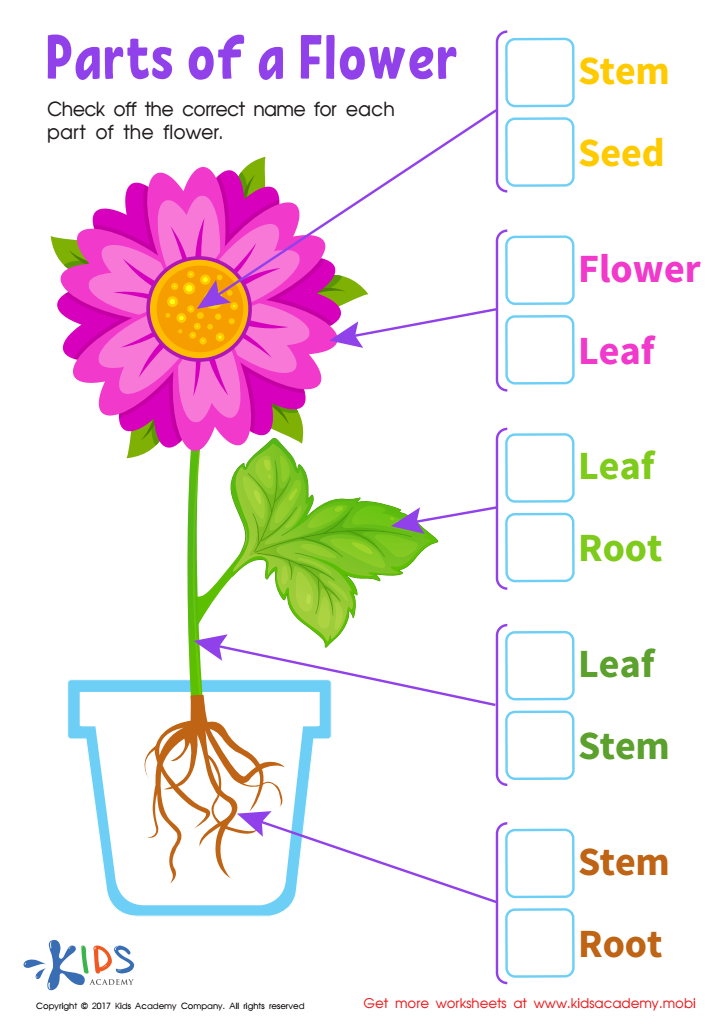Life Science Worksheets for Ages 3-4
3 filtered results
-
From - To
Discover engaging Life Science Worksheets for children aged 3-4 at Kids Academy. Our thoughtfully designed worksheets introduce young learners to the fascinating world of biology and nature through fun, age-appropriate activities. Kids will explore animals, plants, and their environments, fostering curiosity and foundational science skills. Perfect for preschool and early childhood education, our printable worksheets feature vibrant images and simple exercises that encourage hands-on learning. Nurture your child's understanding of the world around them and lay the groundwork for a lifelong love of science with our Life Science Worksheets. Visit Kids Academy to get started today!


Parts Flower Printable


Herbivores Printable


Carnivores Worksheet
Life science for ages 3-4 is crucial as it lays the groundwork for key cognitive and emotional development. At this tender age, children's brains are like sponges, ready to absorb information. Exposure to life science helps ignite curiosity about the natural world, which is fundamental for developing critical thinking skills. By learning about plants, animals, and ecosystems, young children begin to understand the concept of life and the environment, fostering a sense of wonder and respect for nature.
For parents and teachers, integrating life science into early learning isn't just about imparting facts but about building a learning foundation. Activities like observing caterpillars turn into butterflies or planting seeds allow hands-on experiences that enhance observational and motor skills. These foundational skills are important as they translate to other learning areas, such as literacy and mathematics, through enhanced vocabulary and pattern recognition.
Moreover, life science education promotes ethical development and empathy. Understanding that every living thing has a place and a role helps instill values of care, responsibility, and compassion. This early exposure creates well-rounded individuals who are not only aware of their environment but also equipped with the empathy to act responsibly within it.
In essence, caring about life science for young kids isn't just about science; it's about nurturing inquisitive, thoughtful, and caring human beings.
 Assign to My Students
Assign to My Students





















